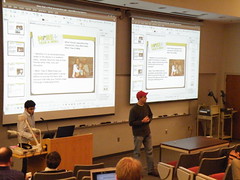Why start-ups should strive to turn innovation into investment

No one starts a start-up to stay a start-up, but the step between innovation and investment is the undoing of many promising emerging businesses, especially in the tech landscape. I’ve been in the business for 18 years, investing time (and more!) in up-and-coming businesses and I’ve seen start-ups make it big and many more fall by the wayside, and I’ve seen recurrent themes in both.
Problem solving is at the root of successful start-up businesses, but I think too many companies fail because they are solving the wrong problems – they expect the world to change everything it does for one new widget. The key to longevity is integration, slotting innovation in to existing workflows. It’s called ‘mental plasticity’ – the ability to be flexible enough to know if you have to change to be what the market really needs.
For me, this means wrapping yourself around the clients’ problems and that’s how VideoHub’s eQ™ system came about. We applied a system to an existing transaction – that between media buyer and publisher – and created a way to gauge value for brands. The eQ score looks at where a video ad is on the page, the size of a player and the length of time that someone watches, applying a score between 0-100 to help brands understand if consumers are seeing their marketing messages in a quality environment. We were responding to a genuine need for quality testing in the industry and filled a useful gap in the market.
Companies like Starbucks, Google and Apple that make it big – so big that you forget they were ever start-ups – have a common thread, not just for innovation but for providing solutions people want to be part of. They teach and delight and apply innovation so people want to embrace it. That’s the blueprint for any start-up regardless of industry, but especially relevant for tech, media and marketing companies.
It’s about being ruthless and realistic about what you can offer and above all, understanding what the market really wants. The current buzz subject is big data and I think smart analytics is a huge growth area, ripe for innovation. In helping marketers better understand marketing performance, efforts are streamlined, driving dialogue and helping the overall ecosystem – which improves performance for everyone involved.
But things have to be practical, and to be successful, companies have to solve a problem that actually exists. Lots of flashy things happen in ad land, but the Internet is past the point of flash over substance and technology for the sake of technology. Practicality over showiness is one of the things I’ll be looking for when judging this year’s Festival of Media Global 2013 Media Accelerator Programme (MAP), a scheme that brings the most game-changing new media companies to the attention of CMOs, advertisers and agencies and names one ‘Hot Company of the Year’.
My advice for the companies hoping to succeed? Be honest. About what you can do and what the market really needs. The world will not change what it does for you, but you will have to change what you do for the world!
[author_bio]
Related articles
- Innovation in gaming platform, gamesGRABR interview with Tony Pearce (thestartupmag.com)
- Patent and Intellectual Property Protection for Startups (thestartupmag.com)
- 6 Ways to Get Your Business Through the Tough Economy (thestartupmag.com)
